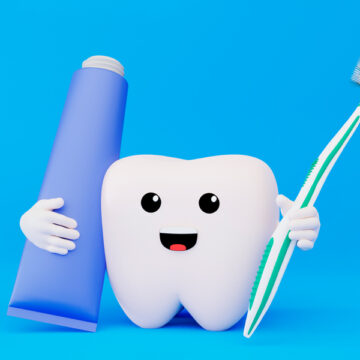Low Radiation Dental X-Rays For Kids
Our dental clinic is pleased to be a kid’s dental place with digital x-rays for kids. During the course of routine cleaning, it isn’t always possible for our dentists and hygienists to see everything happening with your child’s oral health. Fortunately, pediatric x-rays allow us to investigate a potential problem area to determine if follow-up care is necessary. We understand that you may have concerns about the effects of x-rays, but we assure you that we use extremely low radiation. Additionally, we make use of digital x-rays so you and your child’s dental team can see the results right away.
How Often Should Children Have Dental X-Rays?
Pediatric dental patients typically require x-rays more often than adults because their jaws and teeth are still developing. Children are also more prone to tooth decay than adults are. Using diagnostic x-ray equipment helps our dentists spot tooth decay before it threatens the health of the entire tooth. We can then take preventive action, such as applying fluoride or a sealant to keep bacteria at bay. Some of the other reasons we may use pediatric x-rays include:
- Viewing cavities that occur between teeth
- Checking to see if new teeth are erupting as expected or whether the alignment is off
- To determine if your child has extra or missing teeth
- As a way to plan orthodontic care for older children
- To monitor the health of your child’s teeth and mouth after an illness or injury
- To look for bone diseases
- Checking for the presence of infection
Many children actually enjoy this part of the preventive oral health exam. They think it’s cool to see immediate pictures of their teeth as well as how things look below the gum line. For kids who are pre-verbal, you or our dental team can animate taking a picture so he or she has some understanding of what is taking place.
Types of Pediatric Dental X-Rays
The type of x-ray that our dentists use depends on the problem he or she suspects or wants to monitor. The bitewing x-ray, which helps your child’s dentist see between the teeth, is the most common. Your son or daughter may experience mild discomfort when we place a cardboard separator in the mouth, but this should only last for a few seconds. As with every other type of procedure, we explain the reason we are doing it before asking the child to cooperate with us.
Most children won’t need a bitewing x-ray until age six when their first set of molars erupts. The teeth need to be touching each other in order for cavities to form between them. Other types of x-rays your child may need include panoramic, occlusal, periapical, and orthodontic. Bay Area Kids Dentists welcomes your questions and feedback about pediatric x-rays at any time.
Problems We Treat
- Emergency Tooth Extraction
- Severe Toothache
- Loose or Dislodged Tooth
- Bleeding Gums
- Knocked Out Tooth
- Infection or Swelling in the Mouth
- Jaw Pain
- Chipped or Cracked Tooth
FAQs
Start brushing as soon as the very first tooth appears, usually around 6 months. Utilize a soft-bristled toothbrush and a tiny smear of fluoride toothpaste.
Help your child brush their teeth twice a day with fluoride toothpaste, limit sugary snacks and drinks, and visit the dentist periodically for cleanings and check-ups.
Watch for signs such as tooth pain, sensitivity to very hot or cold temperatures, visible holes, or dark spots. Regular dental visits help catch cavities early.
Untreated cavities may lead to pain, infection, and may affect how adult teeth come in. It’s important to treat them, even in baby teeth.
It could be a cavity, tooth injury, gum infection, or something stuck between the teeth. A dental checkup can find the cause.
Sudden pain may be caused by a cavity, a cracked tooth, an abscess, or even sinus pressure. It’s best to have a dentist examine it.
Most babies get their first tooth between 6 to 10 months, starting with the lower front teeth.
Bleeding gums can be caused due to brushing too hard, plaque buildup, or the early stages of gum disease. Ensure your child brushes their teeth gently and regularly.
Persistent bad breath can indicate poor brushing, cavities, gum issues, dry mouth, or even allergies. A dental checkup can help find the reason.
Thumb-sucking is normal in babies, but it can affect tooth alignment if it continues past age 4. Consult your dentist if you are concerned.
If it’s a baby tooth, don’t try to put it back—call us for advice. If it’s a permanent tooth, gently rinse it and try to place it back in the socket or in milk, and come to the dentist right away.
Nighttime grinding (bruxism) is common in kids and can be caused due to stress, misaligned teeth, or sleep issues. We can evaluate if treatment is needed.
Sugary snacks, sticky candies, soda, and even dried fruits can lead to cavities. Encourage water, fruits, and crunchy veggies instead.
Not always, but it can be an early sign of gum disease or poor oral hygiene. Regular brushing and checkups help keep gums healthy.
Many kids start orthodontic evaluation around age 7. Early checks help plan for braces if needed.
Yes, but only for kids over age 6 who can spit it out. Choose child-friendly mouthwashes with fluoride.



















